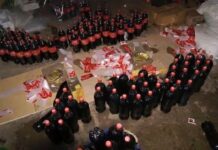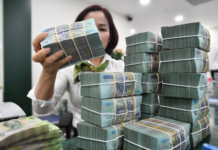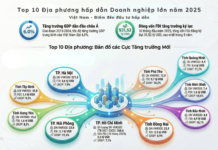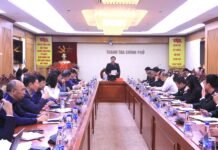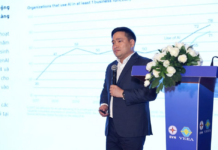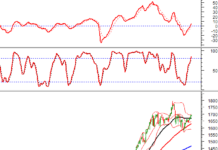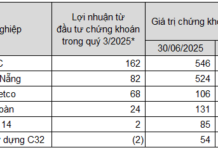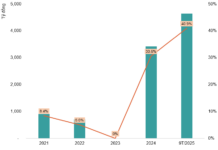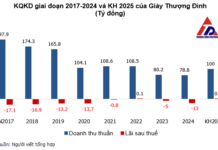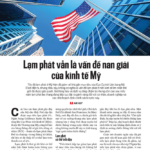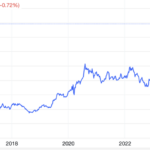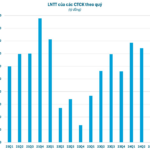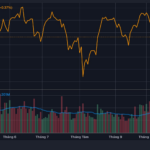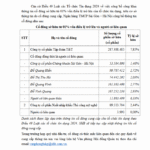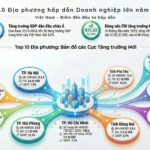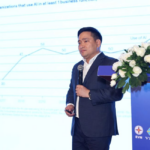According to Mr. Nguyen Duc Lenh, Deputy Director of the State Bank of Vietnam’s Ho Chi Minh City Branch (SBV), the current lending interest rate is no more than 4%/year, creating favorable conditions for businesses to expand and grow their production and trading activities, especially in the last months of the year when there is a large demand for capital to prepare inventory and invest in production.
In Ho Chi Minh City, 17 banks have registered to participate in the program to connect with businesses, with a total capital of more than VND 509,800 billion since the beginning of 2024. The disbursed amount so far has reached more than VND 425,600 billion, equivalent to 83.4% of the package of support committed by the banks.
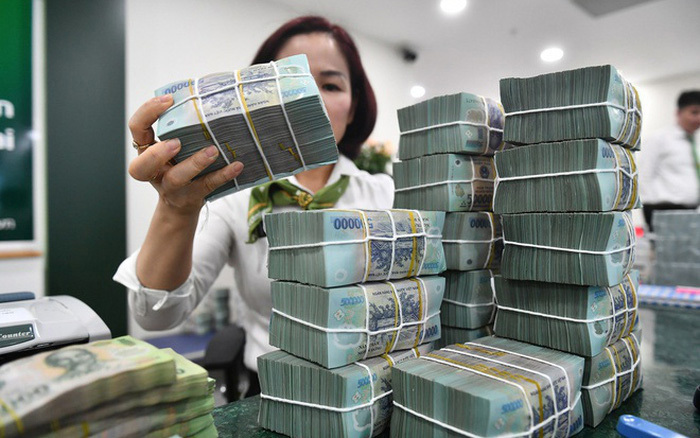
Short-term lending interest rates are currently no more than 4%/year, helping businesses focus resources on year-end production and business. (Photo: TL)
In the field of export, in October 2024, the total outstanding loans in VND reached more than VND 105,300 billion, accounting for about 6.21% of the total outstanding loans of 5 priority industry sectors in the city (including lending to small and medium-sized enterprises; export; agriculture and rural areas; supporting industries and high-tech enterprises).
However, many businesses still find it difficult to access credit.
Reasons why businesses still complain about capital
At the Dialogue between Enterprises and the Ho Chi Minh City Government held by SBV – Ho Chi Minh City Branch and the Center for Investment and Trade Promotion on October 31, many enterprises continued to hope for preferential loans from banks to meet their production needs.
Mr. Bill Nguyen, Business Development Director of Cainver Import-Export Company in District 1, said that the company mainly operates in the export of wooden furniture. Although the general market has declined in the last 1-2 years, the demand for furniture in the European and American markets is very high. However, in order to obtain preferential loans, his company has faced many difficulties.
The reason is that export enterprises often mortgage their export contracts, and the time to enjoy the preferential interest rate is usually shorter than the time to sell goods. Specifically, while his company’s orders are signed with partners for 6-12 months, the preferential interest rate period is usually only 3-6 months.
He said that many orders take more than a year to complete and receive payment, so the time the enterprise has to bear the floating interest rate is quite long. The interest rate that this enterprise has to bear is usually 7-9%/year.
“Enterprises want to access capital with stable preferential interest rates from banks, instead of only enjoying preferential interest rates for a short time and then bearing floating interest rates according to the market. Such high capital costs cause production costs to soar,”
Mr. Bill Nguyen said.

Mr. To Ngoc Ngoi, Chairman and General Director of VinaFor Saigon Jco, is concerned that the high land prices in Ho Chi Minh City will make it difficult for businesses to survive. (Photo: P.Q)
While it is already difficult for export enterprises that meet the lending conditions, small and medium-sized enterprises face even more challenges.
Ms. Le Thi Thuy Van, Executive Director of an enterprise implementing a public toilet project in Ho Chi Minh City, said that her company is facing difficulties in raising capital to develop the project. The reason is that the project has not yet recovered its investment, and it is difficult to access credit because it does not meet the lending conditions. As a result, the enterprise has been struggling for the past 6 years.
At the Conference on Connecting Enterprises and Banks two weeks ago, Mr. Tu Tien Phat, General Director of Asia Commercial Joint Stock Bank (ACB), said that the problem of small and medium-sized enterprises in accessing loans is related to collateral, as well as other procedures such as cash flow and transparency in enterprise operations…
According to Mr. Phat, ACB has committed VND 5,000 billion with an interest rate of about 5% to support enterprises. In addition, the bank also has a green credit program with a scale of VND 4,000 billion and lending interest rates for short, medium and long-term loans from 5.7%/year.
In addition to lending, the bank also provides comprehensive consulting and support solutions to help enterprises access capital more easily for recovery and promote production in the coming time, especially in the last two months of the year.
Qualified enterprises do not want to borrow capital
Sharing at the Conference on Connecting Banks and Enterprises held by the SBV and the Department of Industry and Trade of Ho Chi Minh City, Mr. Tran Viet Anh – Chairman of Thu Duc City Business Association, CEO of Nam Thai Son Import-Export Corporation, said that in fact, if enterprises have orders and good production plans, banks will lend, and the approval process is not too difficult. However, getting the desired interest rate is very challenging, so enterprises are cautious and only dare to borrow from banks with the most favorable policies.
“Enterprises are very cautious about borrowing capital. We just want to sell, get money back, and reinvest in production instead of borrowing more, because borrowing more means higher costs.”
, Mr. Viet Anh said.
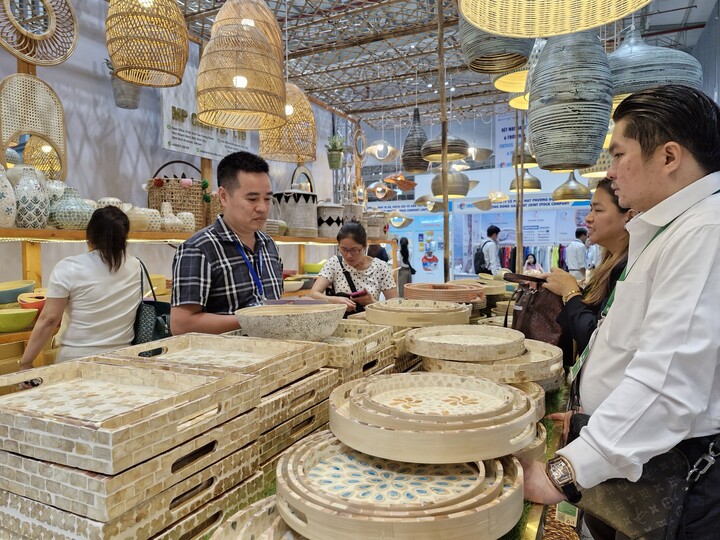
At a time when raw material prices are high but orders are few and selling prices are difficult to increase, enterprises are reluctant to borrow capital for fear of adding costs. (Illustrative image: H.L)
According to Mr. Viet Anh, enterprises with stable production and business and stable customers are usually reluctant to borrow additional capital. If they do borrow, they focus on banks with good policies, low-interest rates, and long-term support. However, finding a bank with good policies is not easy.
To avoid a shortage of production capital, enterprises try to approach customers who can make large deposits or advance payments.
In addition to high capital costs, the increase in land prices has also made it difficult for enterprises to calculate production costs. Mr. To Ngoc Ngoi, Vice Chairman of the Board of Directors and General Director of Saigon Import-Export and Forestry Product Processing Joint Stock Company – VinaFor Saigon Jco, said that the current land prices in Ho Chi Minh City are very high, making it difficult for businesses to survive.
Mr. Ngoi said that high land prices push up production input costs, which is very challenging for businesses. In the same industry, if we compare the production costs of Vietnamese enterprises with those of Malaysian enterprises, the former’s costs are higher. One of the reasons for the high costs is the high land prices, while Ho Chi Minh City is starting to apply new land prices, which are several times higher than the old ones.
He said that this is a significant disadvantage, and orders, which are already scarce, may be lost to competitors if there are no timely support policies for businesses.
Also, an export enterprise, Mr. Bill Nguyen said that the increase in land prices has clearly pushed up production costs. At this time, enterprises have almost finalized their production and business plans for 2024 and are starting to plan for 2025. The market has shown positive signs of recovery as customers in difficult markets such as Europe and America are returning. Enterprises need resources, especially cheap capital, to prepare for 2025 right from the beginning of the year.
Since the beginning of the year, the SBV’s Ho Chi Minh City Branch, in coordination with the Department of Industry and Trade, business associations, and districts, has organized 31 conferences and dialogues and signed loans directly at the conferences, with a total amount of more than VND 58,100 billion for 4,495 business households and production and business households.
Mr. Hoang Minh Ngoc, Deputy General Director of Agribank, said that Agribank is offering six preferential credit packages for businesses. One of these is a special package for agricultural, aquatic, and seafood processing enterprises and those importing raw materials and accessories, with a scale of VND 20,000 billion and an interest rate of only 2.6%/year for a term of less than three months. He hopes that enterprises, business households, and cooperatives will explore and connect with the bank.
Currently, the savings interest rate at Agribank for a term of 1-2 months is 2.2%/year; 3-5 months is 2.7%/year; 6-11 months is 3.2%/year; 12-18 months is 4.7%/year, and 24 months is up to 4.8%/year.
Thus, the lending interest rate of 2.6%/year for the credit package that Agribank offers to support agricultural enterprises is lower than the bank’s deposit interest rate for a term of 3-5 months.
Gold Prices Slip in Early Monday Trade, Experts Point to “Anomalies”
“It’s an anomaly that gold prices have continued to break records recently, despite rises in the USD and US Treasury bond yields.
The Latest and Largest Shareholder Unveiled in Renowned Bank
The Credit Institutions Act of 2024 mandates that banks disclose personal information, ownership ratios, related-party information, and ownership ratios of related parties for shareholders holding 1% or more of the bank’s charter capital. Several banks have recently published their shareholder lists, shedding light on the ownership structure and key stakeholders. This move towards transparency is a positive step for the industry, providing valuable insights into the complex web of investments and relationships that underpin the financial sector.




